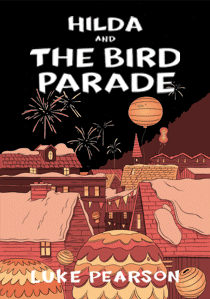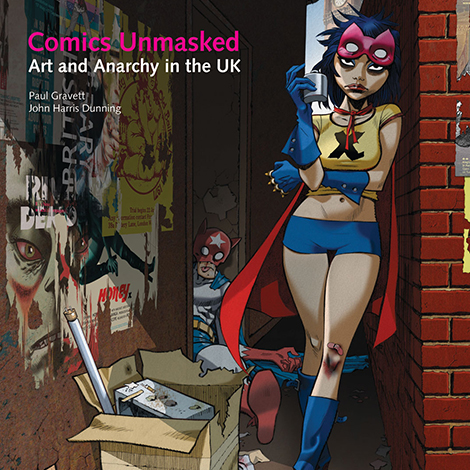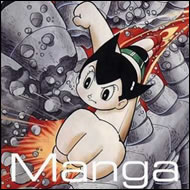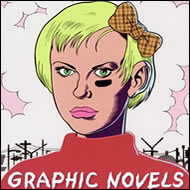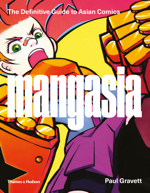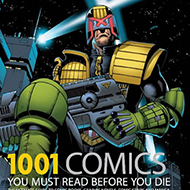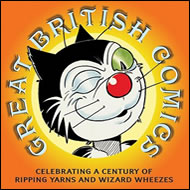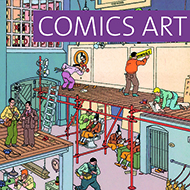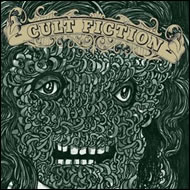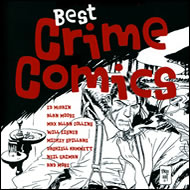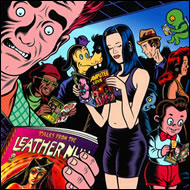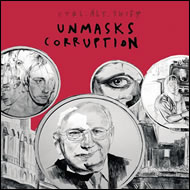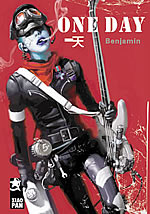Benjamin:
The Leading Contemporary Manhua Artist
On Tuesday, March 25th 2008, brings an impressive roster of contemporary Chinese comics creators to London for a unique and free Study Day at the London College of Communication, Elephant & Castle, London SE1, to tie in with the exhibition I have curated on Manhua! China Comics Now. One of the invited guests is the mainland China artist Benjamin, whose stunning digital art adorns the main exhibition banner and flyers. He’ll be talking about his work, demonstrating his remarkable techniques and signing copies of his books, including the limited edition landscape-format hardback of Orange (the only way to truly appreciate this album) and his latest, Flash, a large, lavish art book launching here on Tuesday March 25th.
In this English-language exclusive, Patrick Abry from Xiao Pan, Benjamin’s publisher in France who will also be attending the Study Day, has given me permission to translate this latest interview with Benjamin. The questions came from Rebeca Fernandez from Madrid and Benjamin’s answers were translated initially from Mandarin into French by Yann Kerhuel. The Sanish version appeared on March 14th in the newspaper El Publico to coincide with the publication of Remember and One Day by Ediciones Glenat in Barcelona. Both books are due out next in German from TokyoPop and Benjamin will be visiting the Erlangen festival in Germany in May to promote them and join an exhibition of around ten Chinese comic artists. English-language editions of the two books are in the pipeline but not till next year, it seems.
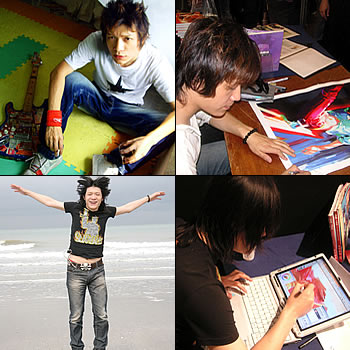
Rebeca Fernandez:
Most of your characters are dark - is this a reflection of your own moods? How much do you see of yourself in them?
Benjamin:
My character is also a bit withdrawn and introverted, my friends tell me that I always have a cold, impassive expression, I always seem shattered, with bloodshot eyes, holding back my feelings. In fact this sort of doubting, lonely mood is a characteristic I broadly share with a lot of young Chinese people, even if their attitude might initially seem very positive and open.
Do you think that this type of character with emotional problems reflects in a way Chinese youth of today?
Actually, I find that everywhere, young people are no longer believing in anything, no longer having faith, totally at a loose end psychologically and feeling really insecure. These young people can’t cooperate or fit in with society, and especially for those who have had a relatively high level of education, for them this psychological void is even more serious. In most cases, they hardly have any trust in their parents (for someone Chinese that’s the absolute minimum of morality) and also don’t trust either their partners or friends.
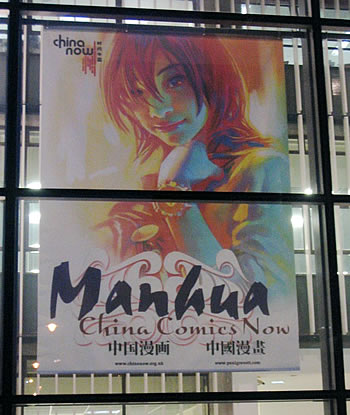
Manhua! China Comics Now
Exhibition Banner
Why are madness, mental disturbance and suicide so much a part of your work?
Suicide has been a hot topic for young people for a long time, on the Internet, blogs, forums, everywhere. Almost all of them, at one time or another, have had the idea of committing suicide. One partial explanation for this may be the enormous pressure, psychologically and professionally, as a result of the dazzling development of China. There is also the paradox which affects these young people’s mood a lot, between what they got from early on through an education centred round devotion to your country, and the logic they adopted later on of personal profit and individualism now ruling our society.
Why not draw nice things and happy endings?
I’ve thought about that, my next project might have a happy ending, and my earlier works were created when I was still pretty young and didn’t see reality in its globality. Whether it’s for those troubled young people, or for the rapidly changing China, and despite the apparent despair in these situations, in reality there are already solutions for each of their problems. It’s just that there’s a latest pessimism and my only objective with my works is to represent that.
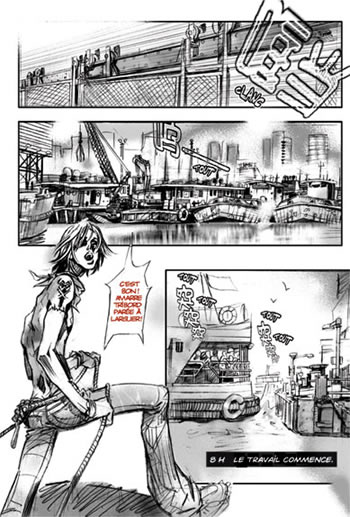
Page from One Day
by Benjamin
Do you use artistic creation as a form of expression for your emotions, as a way to let them out?
It’s impossible for me to express everything, first because China understands comics as a publishing product aimed at children, and so it’s not possible to speak directly about themes which are not suitable for kids, sexuality for example, or to address in a clear, precise way the sentiments and emotions relating to sexuality. It’s also because I am not yet a completely mature artist and I sometimes find it difficult to express myself.
Do you feel like a slave to your own art?
Yes, especially when I’m deeply engrossed in creating it. That’s when I get frustrated and anguished. Then again, I can often feel some pride, when I get a bit of perspective and feel my art is going well.
In one of your stories an artist appear who is struggling against the system, trying to break from convention, yet this leads him to commercial success. Do you think that a true artist is someone who doesn’t go after commercial success? Do you think it’s worth the pain to adapt yourself to what the market demands, or does that leads to the work becoming corrupted?
In China, my comics have gone over well, and I haven’t gone through the mental process of intentionally pursuing commercial success. Perhaps if other artists feel the need to pursue this success, it’s definitely going to be an invaluable help to them and their relationship with society. But as for young artists, or the most talented ones, the excessive, fierce pursuit of things with nothing to do with art (things about business, for example) can’t help but pollute their artistic free-will, affecting the quality of their work, as well as stifling the chances for their art to evolve in the future.
Do you think that true art is a way to struggle against routine and superficiality?
I often find myself struggling against this so-called art, so I don’t have time to live a superficial and monotonous life, and that makes me envious of others, I’d really like to to have time to live their so-called monotonous life…
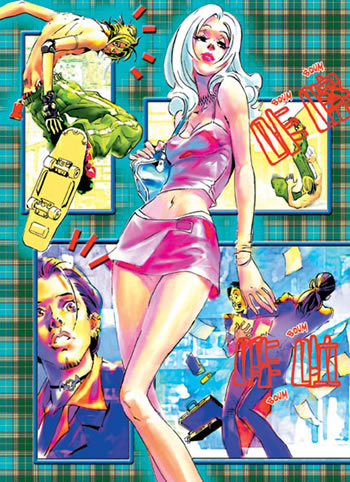
Page from One Day
by Benjamin
Do you think of yourself as an underground artist or an ‘artiste-maudit’ (tortured or misunderstood artist)?
Definitely an ‘artiste-maudit’ would be more appropriate.
In one of your stories there appears an artist who suffers for his work and drive him to his ruin. So drawing is always painful for him. Is it the same for you?
When I see I am making constant progress, I feel happy, and when a book comes out and I put the finishing touches to it, I can’t be happier. But the whole process of drawing is extremely painful. There are always obstacles that stay insurmountable, despite my every effort, and that has nothing to do with the drawing.
In the first story in Remember, the girl says: “Manhua let you describe dreams. That’s what I like best. There’s a glow of hope” (page 22), whereas for the hero, manhua are a big lie. So what are manhua to you?
If it hadn’t been for comics, nobody would have taken the time to listen to me.
What drives you to keep drawing?
All the many stories I haven’t been able to finish yet.
In your books, you explain openly how you drew certain stories, your moods at the time. You’re not reserved or ashamed when you reveal your private life like this?
A little… but comics is my trade, and it’s my way of coping with the demands of realistic subject-matter and true expression, without altering the contents.
What techniques do you use to draw?
I draw entirely by computer, using the programmes Painter and Photoshop, and drawing directly with a digital stylus onto a Wacom tablet.
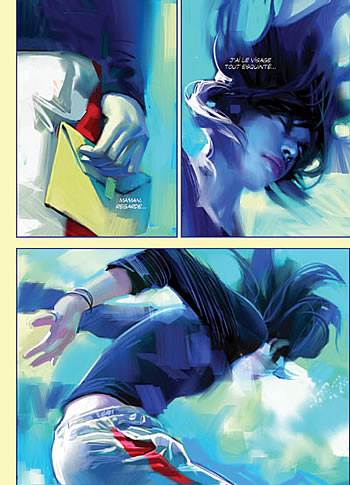
Page from Orange
by Benjamin
What are the advantages to you of drawing on computer compared to traditional drawing by hand?
It saves me from having to prepare my colours every day, and wait for them to dry, that saves me an enormous amount of time, and also allows me to make quick, unlimited corrections to anything wrong, but as a result, on the downside this makes the creative process much more laborious. The biggest advantage of using computer tools is that the finished files can be sent directly to the printer and don’t have to go through the intermediary step of scanning. Before I worked on computer, the scanning often ruined my pages, the finished printed book being greatly inferior to the originals.
What training in art and computers have you had?
I’m completely self-taught. I’m the first in China to explore drawing with computer and so had no teacher or school to learn from.
How has your drawing evolved from fashion school to today?
Actually, much more than the drawing, what interests me more is the expression of the story itself, the expression of its magic, so that it’s not merely lost in the depths of the drawing as it used to seem before. The story is the most valuable thing to me.
Your colours are very strident - is their a meaning behind this?
Quite simply, my screen display is skewed and my recent works have always been saturated to excess with colours. Perhaps I need to rest from them, as I’ve lost my capacity to choose the saturation level of my colours, I’m becoming paranoid about it, whatever I do, it’s always the same way of drawing. I have never particularly thought about why.
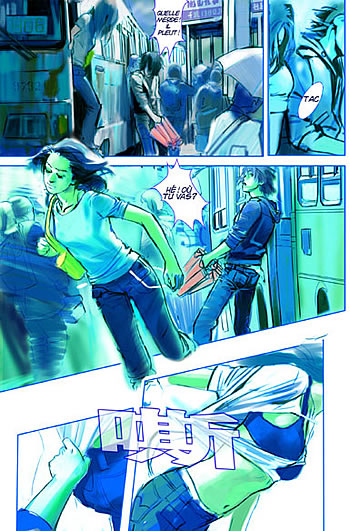
Page from Remember
by Benjamin
You wrote in Remember that your works which you feel detached from, and those which you put your heart and soul into, are those you like the least. Why?
That’s because the illustration linked to this comment (Sword in Hand) was drawn really quickly, for a much shorter time than those devoted to the young men and women I like drawing, and even so I thought it really worked. Although that old warrior, in dull colours, isn’t really a subject I like. It’s an example among others that I’m not pleased with but which I can do successfully. Things I like most, I often to very badly.
How would you define the character of your work?
Grey.
What other artforms (music, cinema…) influence your work? Which artists are important to you?
Hong Kong cinema with directors like Fruit Chan and Wong Kar Wai; Japanese cinema with Takeshi Kitano, Mamoru Oshii, Shunki Iwai; it’s those who have influenced me
most.
You’ve also published two novels in China about rock bands. Why is this theme so present in your work and influence does this type of music have on you and your work?
I’m really drawn to underground Chinese rock bands. In China, they are often in an even more desperate situation than comic artists. They are even more miserable, deprived of recognition and commercial opportunity, even less understood and accepted by society. You could even say that that the Chinese music scene these days is completely bypassing rock. And yet among them lots of people persevere and in such a catastrophic context still find some happiness. I too have disastrous, desperate times too and when we talk about what’s happening to us, I really feel sympathetic. So when I talk about their life, I also feel that it’s my heart that’s talking, and I feel the joy of freedom.
In terms of story and art, which work is your favourite?
Orange.
In the first story in Remember, the artist is continually screaming at his publishers, who refuse to publish him because his style is too new and different from manga, the style the public is clamouring for. Is it hard for an artist today in China who doesn’t draw in a Japanese style to get published?
An artist like that would still seem like a risky prospect to a publisher and so would have trouble getting his work published. But, little by little, inexorably, more and more comics are coming out that are far removed from the Japanese style, and I think even those who are a only slightly similar to manga are proliferating too. In China, comics in all sort of styles are growing.
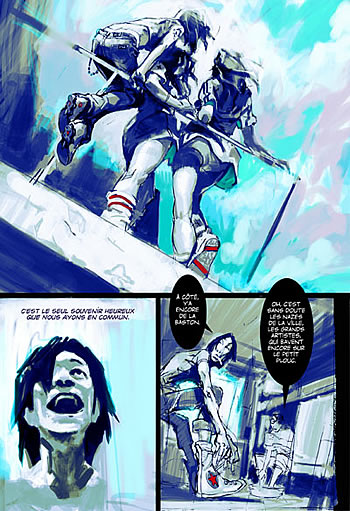
Page from Remember
by Benjamin
How has manga influenced manhua? How far should Chinese products be inspired by manga to guarantee their commerical success?
Most manhua are evolving towards the Japanese manga model which publishers are tending to adopt. I’m certainly not an experienced publisher, and, I hope, nevertheless we’ll see other models appear, models more suited to China than the Japanese one. Right now that is hardly emerging, there’s almost no sign of it yet.
How would you define the main characteristics of current manhua?
Eclectic, colourful.
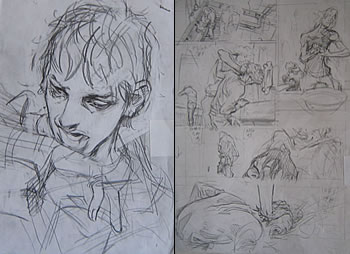
Pencil sketches
by Benjamin
In March your art book Flash will be published. What can your fans find inside?
Flash collects all my illustrations from the past ten years, and the experiments in my main works, which with the passage of time reveal an evolution of style and sometimes make me ashamed, even if I hoped to share them with everyone.
What are your future projects?
I’ve just become an editor-in-chief and I’m trying to publish in China a set of six books, to appear one every two months in a format taken from the magazine. Each one will contain work by the best comic artists in China. It’s a difficult task, and more so than the ‘typical’ problems related to publishing. I also hope in the future to continue writing novels and making comics, to tell everyone the stories of young people in China.
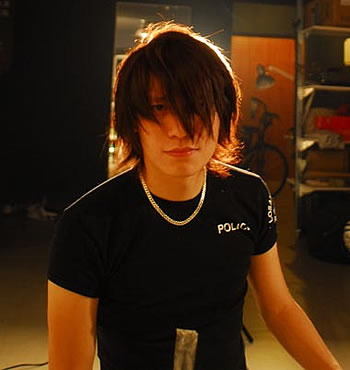
POSTSCRIPT
The following text is by Benjamin and appears as the postscript and artist’s notes for his new monograph Flash from Xiao Pan. Translation from the French version by Patrick Abry and Paul Gravett.
I am a Chinese comic artist, still young, and living mainly in China. My life, a short one, my character, my way of thinking, are completely typical of people from my generation. Since my childhood, our heads have been filled up with a lot of ideologies, which turned out later to be totally untrue. We, the young people, all have the same reaction: we are permanently surrounded by doubt. We work like mad people, study furiously, always looking for material and financial riches, because this makes us feel more comfortable. We think everything is huge, even the value of our own existence, to wipe away our doubts. But it seems that all this is for nothing, because people who make such an effort but without conviction end up wandering without direction, and more and more seriously.
Autumn is back. I am lying down on my bed, smoking cigarettes. I hear the wind outside the window. I think about things. These passed ten years, I’ve drawn a lot, met many people. They come and go; some of them are hidden in my comics. I spend my time waiting, waiting, waiting for the next festival, waiting for phone calls that may never come. While I am waiting, I count the passage of time, each second, each minute of my life, lost forever. Body is perfect, but for a long time brain has been losing its ability for analysis. I still want to become a ‘great man’, but what does it mean exactly? And myself, who am I?
When I was a little boy, I believed I could become the saviour of the human race, I thought my mission was to take on this immense world. The stronger I become, the more I realize that world is quite small. I am just a small grain of dust. The world is much smaller than I imagined when I was a boy, our planet is no bigger than that.
I cannot even get over a flu without medicine. For a grain of dust, which wants to save the world, this is just ridiculous. I always like to complicate things. I am merely a little artist who thought he was a saint, a prophet of our times. I lost too much time making things more complicated to spare me from the trials of life to come. I do not know what kind of girl I like any more. The ones I met in the past just disappeared from my memory. I am unable to draw a new type of girl. So I have no other choice than to work on the quality of their fabrics, the accuracy of form, or emphasizing some special techniques from Chinese paintings, known as “typically Chinese”.
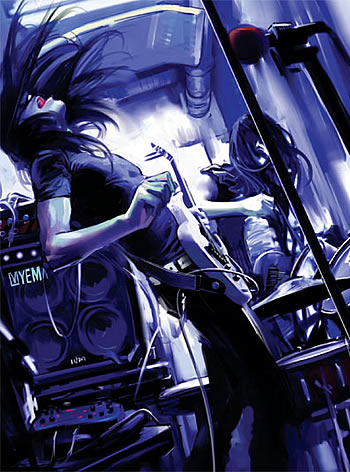
Image from Flash
by Benjamin
I understand now why some mature painters draw in a purely formalist style, without looking for any innovation. This is just because they do not find any more things to love, they lost the desires they had when they were young painters, there is no subject that they deeply desire to represent. This group of old artists are unable to fall in love again with a girl. They do not like plants, or colours, or sun, ocean, but are hungry for profit and notoriety. They become rich by selling daubs produced only to please the public. This is the case of some artists who have lost their aesthetic sensibility, chasing only after glory.
Why didn’t I become an old artist like this? My friends are already half bald, they have children. Artists before, they are now business sharks or crooks. But myself, why do I still wear coloured T-shirts, why is my head still full of stories about girls? Why am I still alive? I am not married, I have no children, my father is getting his pension, my brothers and sisters are adults. Passions are dead, things from the past make me laugh, and now I easily get bored.
There is a power which comes from age. Some try to push me into loving money, but I don’t care. That’s a rather regrettable physiological. But then, what am I living for? What does my life mean? I rarely have very long discussions any more, it seems I talk less and less of the future. Each day, I cook, wash clothes and clean the floor. I am more active and needy than people around me. This is because I know there’s no place better in the world than my tiny bedroom. I listen to music, write, draw flowers and plants. I am living my little grain of dust life. Our dreams actually have no substance.
I know exactly what I need: Music, writing, drawing. That is all I need to make me happy.
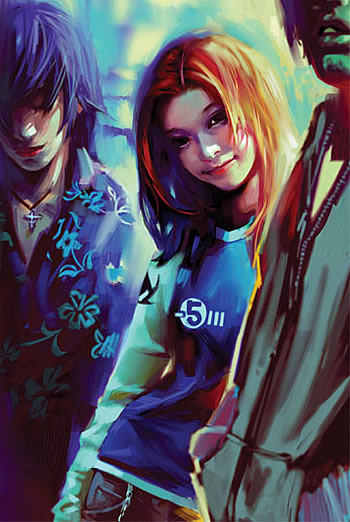
Image from Flash
by Benjamin
Basement
This is the story of a feeble Chinese rock band. These rockers have totally different principles of how they live, love and create from western rockers. The main difference about them where their way of life will lead them. Blazing adolescence without any ideal, only chasing money, their hearts completely empty. Apart from them, nobody needs rock music and, despite their fights and struggles, the story inevitably ends as a fiasco.
Where Shall We Go?
In China, a young comic artist falls in love with his best friend’s girlfriend. This is the first time he betrays a friend and is part of a real love story. This is how the story starts, and by the end, he will be betrayed in turn by friendship and by love, not because of his friends or his lover, but because of the morals or ‘hidden rules’ of modern society. Here we can see how a guy without any real social status experiences happiness and difficulties, how, in a life without faith or belief, success, as well as the appetite and egoism of independent workers, turn out to be insignificant and vulnerable. In this novel we find different facets of human relationships, warm or closed, and the ‘hidden rules’ of Chinese society. This is my second novel. It is the result of ten year’s experience in life and observation of society.
One Day
One Day is my first comic book, and my third book published in France. The main character, male, contemptuous of how people from his parents generation live their life, spends a day when everything goes wrong. At the end of the story, he realizes that he himself is on the same path as the older generation. This is a feeling I had myself in the past, immersed in the poverty and idiocy you encounter generally in Chinese society. Life seemed to me dark and insipid then. But ‘when you cross a river, you never take the same stream twice’ (this sounds like the words of a western philosopher): we cannot live the same things twice, as history does not repeat itself. ‘God has fantastic powers’ and for me or for Chinese society, we have lived through extraordinary changes. Carrying our misfortunes and enthusiasms within ourselves, we fix our eyes on the future.
Remember
This is my second comic book, but the first one published in France, and it is made up of two stories. The first is about a young depressed man, who lives a love story which he lets die. The second is about a student coming from a far province, who came to the city to prepare for exams to enter university. But he cannot adapt himself to the surroundings and goes mad.
I admit that the publishing of this book in France changed my life, even upset it. Since then, I’ve been able to learn a lot of new things. It’s like, as a humble member of third-world, I had lost my identity. I start to have doubts about the artistic path I must follow. I have deviated from the path I started out on and from now on, anything is permissible in the future.
Orange
How does a young high school girl, who writes everyday that she is going to kill herself, see her life and herself? Her so-called sufferings are in fact created by a feeling of fragility and an inferiority complex that go back to before her active participation in life. But if we forget that point, she is very happy, and can show her qualities and her moods only in an extreme way. Due to her changing hormones in late adolescence, this schoolgirl never feels right, and her whims will lead her to an unexpected denouement.
I have been working on Orange for several years, without being able to publish it in China. So this is a Chinese comic people can read in France. This is great! I am happy there is France where I can offer my creations to readers.
Savior
In the middle of an infinity of worlds, which respect the rule of non-interference, there lives a savior. Holding his guitar, he has a mission: save each world from its own crisis. Almost every time he succeeds, but always feels a little more gloomy. I use this fanciful tale to show many of my own feelings: how, in this imperfect world, you have got to get out and exist. In this world, many lies become the truth, like those ‘false loves’ which are actually true ones. In the same way, many truths are actually lies, like when we say that ‘love’ is an implicit rule in our societies.
Publishing this book in China brought me many criticisms from the readers for the first time, who reproached me not having worked enough on this book. God is my witness: I work seriously! This book is the first one of a series and, book after book, I will draw this long story I have in my head. These books will be the ones I am the most proud of.
Benjamin
Young Chinese, author of four comic books and two novels, spends all his time trying to prove that this world has a sense of justice and reason; that if we make enough effort, our dreams can become reality; that materialism and pursuit of profit are not the best way to find happiness; that this world is governed by a simple principle: "creating is more enriching than possessing".
Posted: March 23, 2008
